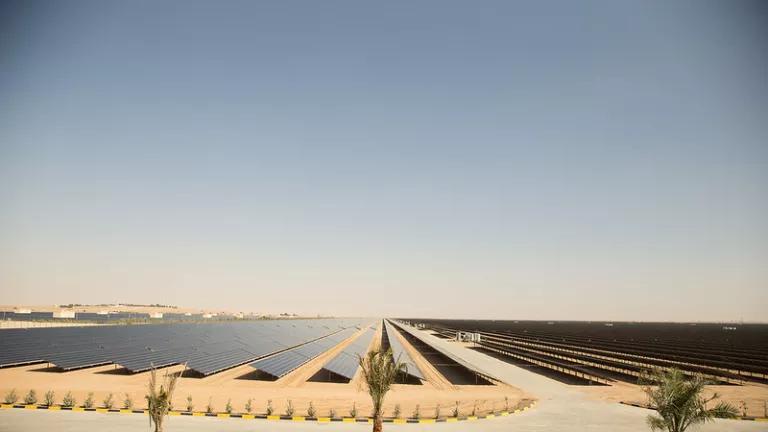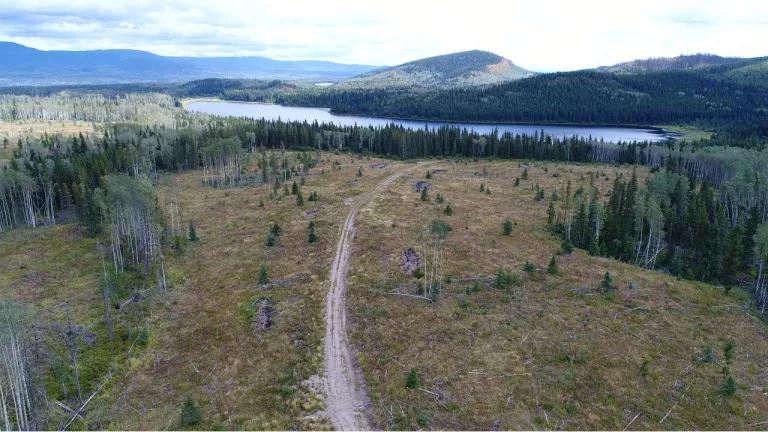What the IPCC Really Says on Forest Biomass & Climate Change
Reliance on forest-derived wood pellets for largescale electricity generation has increased dramatically over the last decade. Despite claims from forest biomass proponents, the IPCC does not even assess, let alone support, the use of forest bioenergy and BECCS as a climate solution and has not determined that biomass is essential to addressing climate change.
Forest biomass industry proponents like Drax, Enviva and the U.S. Industrial Pellet Association frequently claim the Intergovernmental Panel on Climate Change (IPCC) endorses forest biomass and prescribes it as part of the solution set to climate change. This claim gained traction after the publication of the Panel’s 2018 special report on keeping global warming below 1.5° Celsius, which included modeled pathways that involved bioenergy with carbon capture and storage (BECCS).
The IPCC has made it clear that we must immediately and dramatically reduce carbon emissions to avoid the worst effects of climate change. Deploying forest biopower or BECCS plants at a global scale would do the opposite. Despite claims from forest biomass proponents, the IPCC does not even assess, let alone support, the use of forest bioenergy and BECCS as a climate solution and has not determined that biomass is essential to addressing climate change.
There are four reasons why the industry’s claim is wrong:
First, forest bioenergy is not carbon neutral, as recognized by the IPCC. Scientists at the IPCC and elsewhere are clear that this simplistic picture of bioenergy and BECCS is flawed. Biopower from forests without CCS is rarely carbon neutral. According to the IPCC, it is inaccurate to “automatically consider or assume biomass used for energy [is] ‘carbon neutral,’ even in cases where the biomass is thought to be produced sustainably.”
And because bioenergy is not inherently carbon neutral, adding CCS to a biomass plant does not make that BECCS scenario inherently carbon negative. This fact has been underscored by recent research.
Second, IPCC models did not assess use of forest-derived wood pellets for electricity. In the IPCC assessments, BECCS modeling is not even focused on the power sector, instead projecting on average at least 60% of primary energy from BECCS going to liquid biofuels (transportation fuels made from biomass). Moreover, most sourcing for BECCS was from non-forest feedstocks. The IPCC models largely looked at scenarios in which biofuels are supplied by non-forest biomass, such as dedicated energy crops, whereas today’s biopower stations run primarily on wood pellets produced from the harvest of standing trees and low-grade wood.
An established body of peer-reviewed science tells us that when forest-derived biomass is used for largescale electricity production, it makes climate change worse for decades, with or without CCS (see here, here, here, here and from the IPCC here). The IPCC's models, which as noted rely predominately on a completely different type of biomass, do not contradict this science nor do they conclude that burning wood pellets for electricity is climate beneficial.
Third, IPCC pathways ≠ IPCC prescriptions. In its 2018 report, the IPCC examined over 60 different global models to find out what it would take to keep global warming below 1.5°C and grouped the answers into four illustrative model “pathways.” None were meant to indicate the IPCC’s endorsement of any particular pathway or solution set. As the IPCC authors state, “These pathways illustrate relative global differences in mitigation strategies, but do not represent…national strategies, and do not indicate requirements.”
Fourth, harvesting forest biomass to produce pellets harms forest carbon sinks, whereas all pathways identified by the IPCC to address the climate crisis involve enhancing forest carbon sinks. Recent research (here and here) shows that using trees to produce electricity does not even maintain carbon sequestration levels. For example, cutting and burning forests in the southeastern United States – the leading global region for wood pellet manufacturing – leads to a net shift of carbon from the land to the air that lasts for decades.
Reliance on forest-derived wood pellets for largescale electricity generation has increased dramatically over the last decade. Yet, the science is clear that deploying forest biopower or BECCS plants at a global scale risks worsening climate change at a time when the IPCC says we have no time to waste on false solutions. As the points above show, forest biomass industry claims are wrong; the IPCC does not endorse the use of forest bioenergy and BECCS in addressing climate change.


